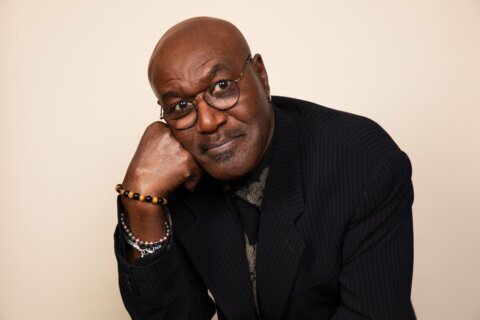
Just eight years ago, Ben Affleck was on top of the world, winning Best Picture for “Argo” (2012) to claim his second Oscar after a screenplay win for “Good Will Hunting” (1997).
Since then, he has fallen from grace after a messy divorce from Jennifer Garner and a highly criticized run as Batman, including the panned “Batman v. Superman: Dawn of Justice” (2016) that inspired angry fans to launch the hashtag #ReleaseTheSnyderCut.
And so, his new role in “The Way Back” marks a comeback of sorts for Affleck, whose role as a recovering alcoholic high school basketball coach mirrors pieces of his own life.
The story follows Jack Cunningham, a former high school hoops star who gave up the game. Decades later, he is a divorced alcoholic working a blue-collar job by day and boozing at the bar by night — until he is invited to coach his struggling alma mater.
The role is easily Affleck’s best performance in years, boasting a puffy face, bloodshot eyes and staggered walk. He drinks beer in the shower. He drinks beer in his truck. He drinks beer at family gatherings. It’s all kept at a moping simmer amid shocking outbursts.
It won’t go down in history like Ray Milland in Billy Wilder’s “The Lost Weekend” (1945) or Frank Sinatra in Otto Preminger’s “The Man with the Golden Arm” (1955), but it’s a worthy combination of Gene Hackman’s coach and Dennis Hopper’s drunk in “Hoosiers” (1986).
Director Gavin O’Connor knows his way around the genre, having directed Nick Nolte to an Oscar nomination as an alcoholic former boxer turned MMA trainer in “Warrior” (2011). He also knows Affleck, having directed him as a hitman savant in “The Accountant” (2016).
In “The Way Back,” O’Connor co-writes the script with Brad Ingelsby (“Out of the Furnace”), routinely subverting our expectations from other underdog sports flicks. Often, we get excited to watch the game, only for a superimposed score to flash on screen.
This works well during passage-of-time montages (i.e. “Remember the Titans”), but it would have been nice to see a little more of the games early on. Thankfully, when we do see the action, the game play is realistic, featuring talk of backdoor screens and authentic athleticism, allowing for emotional impact when Rob Simonsen’s music swells to victory.
It soon becomes clear that O’Connor cares more about the off-the-court drama, slowly revealing why Affleck is so depressed, from daddy issues to marital grief. As we peel the onion to reveal his tragic backstory, it feels like brother Casey’s role in “Manchester By the Sea” (2016), though not as well-crafted as Kenneth Lonergan’s Oscar-winning script.
As we learn the barrage of bad things that happened to him in the past, we admire the script’s attempt to make the character arc about something more than just basketball, but the heavy dramatic elements occasionally feel cliche. One particular hospital scene where he watches a friend’s terminally ill child feels particularly forced for the sake of drama.
By the time we get to the final act, you might even miss the basketball. In a sports redemption story, we want to see the redemption on the court, but we get no such payoff. Instead, he’s kicked off the team for being hungover at practice, which is a great “all is lost” moment, but we never see him interact with his players again the rest of the film.
All that’s left is a radio broadcast of the big playoff game while Affleck is off shooting hoops on a blacktop court outdoors. The players dedicate their pregame huddle to him, dropping an f-bomb that draws a glare from their Catholic school officials, but is that really enough for a satisfying conclusion to a sports movie? Shouldn’t we at least see the big game?
Winning isn’t everything, but competing is something. “Rocky” turned a loss into a masterpiece of self worth, but imagine if we didn’t see the final fight with Apollo Creed? Hackman found redemption in “Hoosiers,” but imagine if we didn’t see Jimmy Chitwood drain that final shot? We might respect the movie, but we wouldn’t love it.
And so, as the sun sets against the Pacific in a beautiful final image by cinematographer Eduard Grau, we assume Cunningham has found inner peace as he shoots jump shots alone in silhouette. Still, we wish he would have rooted his players on from the stands or at least given them one last pep talk in the locker room: “You’ve got this without me, guys.”
As it is, we walk away with a shrug, happy for his character’s quasi-redemption but not feeling an emotional fulfillment for the players’ whose lives he supposedly touched. At the very least, it’s a comeback for the real-life Affleck with hopes of more great roles to come.









